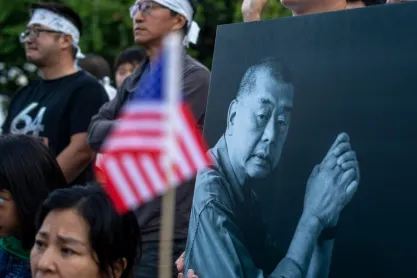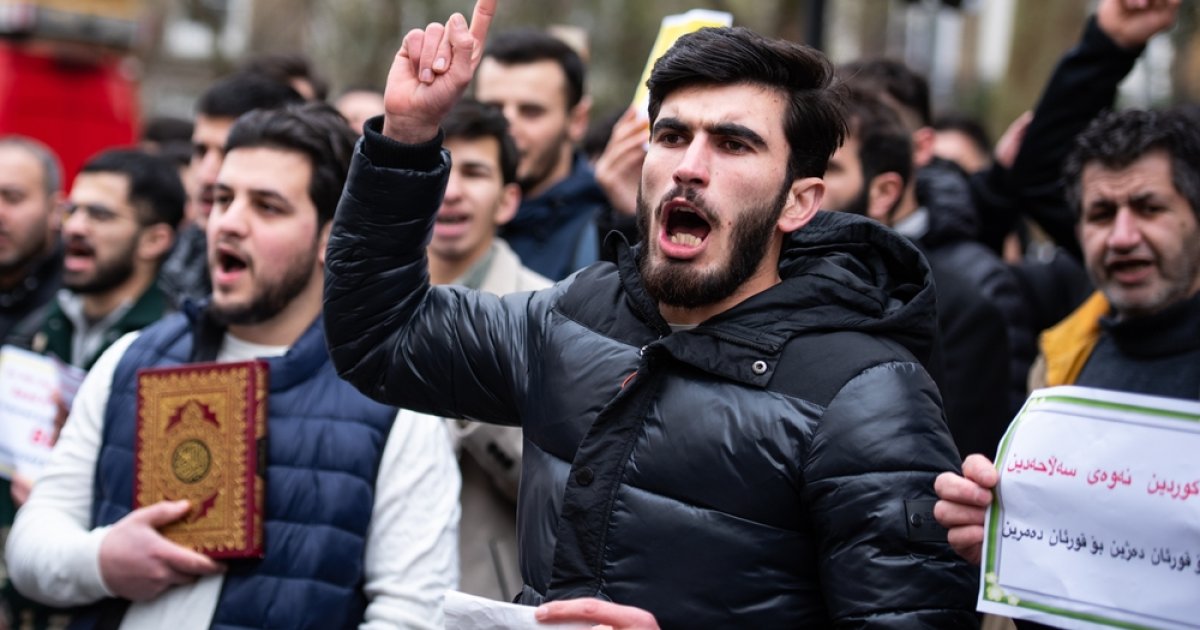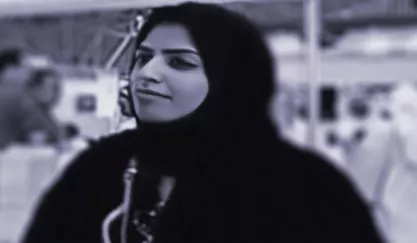Last year, FIRE launched the Free Speech Dispatch, a regular series covering new and continuing censorship trends and challenges around the world. Our goal is to help readers better understand the global context of free expression. Want to make sure you don’t miss an update? Sign up for our newsletter.
Return of blasphemy prosecutions feared in the UK
On June 2, four months after West London resident Moussa Kadri attacked Kurdish-Armenian asylum seeker Hamit Coskun for burning a Quran, Westminster Magistrates’ Court found Coskun guilty of a religiously aggravated public order offence and fined him £240 ($323).
Coskun ignited a new round of debate over blasphemy in the UK after burning a Quran outside London’s Turkish consulate and yelling “Fuck Islam” and “Islam is a religion of terrorism,” which he has since repeatedly claimed was a protest against “the Islamist government of Erdoğan,” Turkey’s president. In response, Kadri attacked him with a knife, knocked him to the ground, and kicked him while he was down.
But there’s a particularly disturbing element to this case. Namely, the judge’s justification for the conviction. The “disorderly” nature of Coskun’s protest, the judge said, “is no better illustrated than by the fact that it led to serious public disorder involving him being assaulted by two different people.”
That’s right, a man’s violent attack on another was cited as evidence of the victim’s guilt.
The UK was not alone in making blasphemy news in recent weeks. In Bangladesh, a 23-year-old was arrested under the country’s Cyber Security Act for “insulting” the Prophet Muhammad on Facebook. An Iranian court upheld a death sentence on blasphemy charges for the musician Tataloo. And Sweden may be facing yet another Quran burning controversy, but appears to be allowing it to proceed — for now.
Political speech in the crosshairs around the world
- Mayor Gilles Platret of French city Chalon-sur-Saone banned display of Palestine’s flag in the city this month as well as “all pro-Palestine demonstrations.”
- Hungary delayed a vote on a bill that would allow punishment including bans on organizations judged to “threaten the sovereignty of Hungary by using foreign funding to influence public life.”
- Istanbul prosecutors — continuing Turkey’s crusade against imprisoned Istanbul Mayor Ekrem Imamoglu, a rival of President Recep Tayyip Erdoğan — banned use of Imamoglu’s image and audio recordings.
- Israeli Education Minister Yoav Kisch threatened to revoke funding to universities where students have held Nakba rallies. “Academia is not a platform for incitement under the guise of freedom of expression,” he wrote.
- Kneecap member Liam Óg Ó hAnnaidh has been charged with a terrorism offense by the UK Metropolitan Police for displaying a flag supporting Hezbollah at a concert in London last year.
- The lese-majeste case against American academic Paul Chambers, accused of insulting Thailand’s monarchy, has officially been dropped. Chambers will return to the U.S.
- Malaysian police are investigating a queer sexual health workshop for “causing disharmony, disunity, or feelings of enmity, hatred or ill-will, or prejudicing the maintenance of harmony or unity, on grounds of religion.”
- Georgian Dream, the ruling party of Georgia, says it’s taking action against “the filthiest phrases and insults” made against its party members from a so-called “externally funded hate speech campaign.”
- Ashoka University professor Ali Khan Mahmudabad was arrested for social media posts about India’s tensions with Pakistan, including one about “those who are mindlessly advocating for war.”
Eight year sentence for Brazilian comedian
A São Paulo state criminal court sentenced comedian Leo Lins to a whopping eight years and three months in prison for “practicing” or “inciting” racism and religious prejudice as well as for his comments about disabilities. The charges stemmed from a viral 2022 set in which Lins mocked “Black and Indigenous people, obese people, elderly people, gay people, Jews, northeastern Brazilians, evangelicals, disabled people and those with HIV.”
“When there is a confrontation between the fundamental precept of liberty of expression and the principles of human dignity and judicial equality, the latter should win out,” the judge said of Lins’ sentencing. Lins intends to appeal.
Free press under attack from Saudi Arabia to El Salvador to Samoa
-
On June 14, Saudi Arabia executed journalist Turki Al-Jasser on treason and terrorism charges. Al-Jasser’s supporters claim the charges were in retaliation for the journalist’s criticism of Saudi royals. The Committee to Protect Journalists says the international community’s failure to act after Jamal Khashoggi’s murder “emboldened de facto ruler Crown Prince Mohammed bin Salman to continue his persecution of the press.”
Jamal Khashoggi’s fiancé Hatice Cengiz looks at his photo as Nihad Awad of CAIR speaks about the murder during a demonstration at the Saudi Embassy, Washington DC, October 2021 - Staff of an investigative news outlet in El Salvador, El Faro, fled the country in expectation of criminal charges after reporting that President Nayib Bukele’s party “paid gangs a quarter of a million dollars during his 2014 mayoral race for their help getting him votes in communities they controlled.”
- An Argentinian investigative journalist is accusing the country’s intelligence services of approving a plan that would “allow agents to gather intelligence on journalists, economists, academics and other critics of President Javier Milei and his government.” The government denied the allegation “but acknowledged the existence of the document.”
- A Kenyan author was arrested after President William Ruto’s daughter accused him of impersonation for writing a book about her without her permission.
- Samoan journalist Lagi Keresoma was charged under a criminal defamation law over her article about a former police officer’s legal challenges. Press freedom advocates are pushing for the repeal of the criminal defamation statute, rightfully warning of its limits on journalists’ rights.
- London BBC staff are raising the alarm over the Iranian government’s efforts to intimidate them within the UK, citing a “sharp and deeply troubling escalation” in Iran’s years-long campaign against them. Metropolitan Police said at least 20 people in London have been the target of violence and threats by Iran in recent years.
The latest news in tech: Porn, bans, and Telegram
- Six of Brazil’s 11 Supreme Court justices voted in favor of holding tech companies responsible for “illegal” third party content posted to their platforms but specifics on the enforcement and other details are still forthcoming. “We must, as a court, move in the direction of freedom with responsibility and regulated freedom, which is the only true freedom,” one judge said.
- President Emmanuel Macron has committed to banning social media for children under 15, citing a recent murder in the country. “Platforms have the ability to verify age. Let’s do it,” he said.
- And Pornhub warned it will no longer be available in France over recent age verification legislation.
- Porn is a focus of government action in Tanzania, too. Information minister Jerry Silaa announced a block on the platform X over the presence of porn on the site, material he said is contrary to Tanzania’s “laws, culture, customs, and traditions.”
- Vietnam ordered a block on Telegram, citing “anti-state” material available on the app and legal authority prohibiting “taking advantage of telecommunications activities to oppose the state.”
- Transparency reports show that in the early months of 2025, Telegram handed law enforcement data on 22,777 users, a major jump from previous disclosures.
China’s censorship looks to the past — and abroad
Unsurprisingly, the 36th anniversary of the Tiananmen Square massacre brought another wave of censorship in Hong Kong, which in previous years was home to mass demonstrations commemorating the date. But now even silent protests are criminalized, and self-censorship has soared. Police made some arrests, including “a man holding an electric candle, a man standing silently in the rain, and two women, including a girl holding flowers and dressed in a school uniform.”
Censorship of the Tiananmen anniversary is widespread online, too. Media outlet ABC obtained authorities’ 230-page Tiananmen censorship guide “used by frontline content censors to train artificial intelligence tools to moderate vast amounts of content.” A similar memo warned, “Delete first. Review later.”

Amidst the censorship surrounding June 4, other national security-related threats emerged in Hong Kong. Joshua Wong, a pro-democracy activist already serving a nearly five-year prison sentence, was hit with new charges — while beyond bars. This month, he was charged with “conspiring to collude with foreign forces” for allegedly encouraging other nations to impose sanctions on Hong Kong in 2020. And the city’s police are warning residents that they too may face national security charges if they download “secessionist” mobile game Reversed Front: Bonfire, which allows users to play as targeted groups rising against the Chinese Communist Party. Even just recommending the game could qualify as “incitement to secession.”
Censorship of disfavored political speech isn’t just a problem within China and Hong Kong — critics of the Chinese government face repression on a global scale. At Book World Prague, a Czech book fair, Chinese officials unsuccessfully pressured organizers to remove the Taiwanese flag from a publisher’s booth as well as censor a catalog that mentioned involvement by Taiwan’s Ministry of Culture. And here in the United States, two men, one from China and the other from the UK, are accused of stalking a U.S.-based man in an effort to prevent him from protesting Xi Jinping’s 2023 visit to California.







